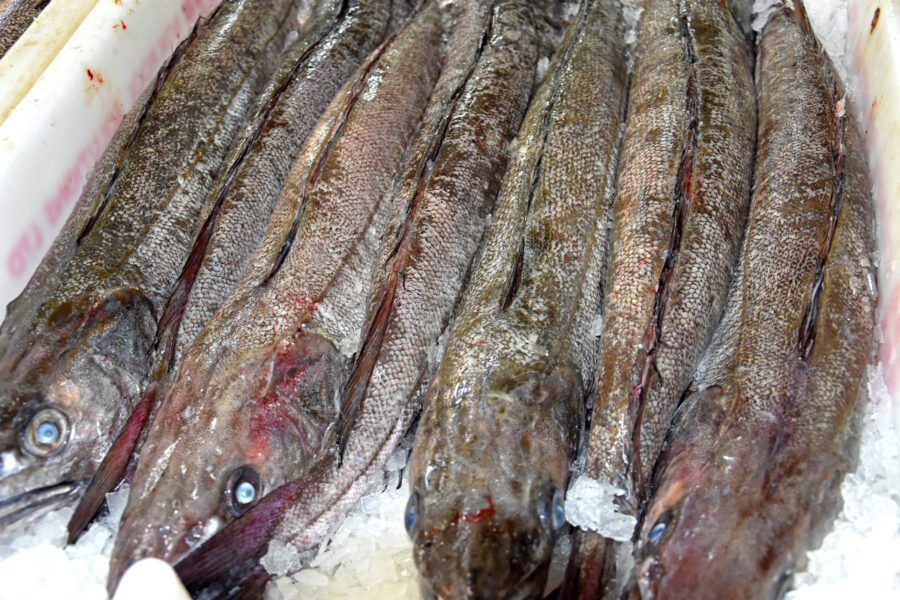Scots minister calls on Eustice to act
Scottish fisheries minister Fergus Ewing has warned that Scottish North Sea vessels will be tied up early by North Sea hake becoming a choke species under the landing obligation.
And he says that without further action from the Commission and the UK government ‘the landings obligation will fail in 2019’.
He says the mismatch between the historic distribution of hake quota and current distribution of fish creates ‘a critical choke risk’ and that an urgent solution is needed to avoid Scottish vessels being tied up early.
“As things stand, the Scottish fleet will be unable to implement the landing obligation in 2019 without tying up prematurely,” says Fergus Ewing.
This would be ‘intolerable’, not least because under the Brexit transition deal the situation will continue ‘until at least 2020’, and the UK would not be able to change or influence matters.
This will extend the period during which the Scottish fleet will be subject to the current landing obligation ‘with all the intractable and frustrating problems it brings’.
He warns that current measures to mitigate choke species dangers are not enough to prevent early tie-ups and that ‘innovative solutions’ are needed.
The Scottish minister says the Commission must find answers, and in a letter to UK fisheries minister George Eustice, seen by Fishing News, asks for his help in pushing the Commission on the issue.
He points out that hake is an unavoidable by-catch in the North Sea haddock fishery and that since the 2000s catches have consistently exceeded quota. This is because only 3% of the overall TAC is allocated to the North Sea, while the stock has expanded into northern areas and shifted its distribution ‘such that much more is now found in the North Sea than has historically been the case’.
While current flexibilities to address the problem are welcome, ‘they simply do not provide an answer for North Sea hake’, he tells George Eustice.
For example:
- further selectivity and/or spatial avoidance are hard to achieve without reducing catches of target species to unacceptably low levels
- a high survivability exemption is unlikely to be scientifically justifiable
- de minimis is not an option, as the amounts being discarded could not reasonably be described as such
- the volumes of catches mean that neither inter-annual, inter-species nor inter-area flexibilities can resolve the challenge, and/or may create unacceptable risks for other stocks
- 57% of hake quota is unavailable for inward swaps due to rules prohibiting them from any country that does not hold North Sea quota, such as Spain, Ireland and Portugal – even if a suitable currency could be found in return.
“North Sea hake is, therefore, a true category 3 choke species, requiring an alternative approach at a supra-regional level.”
Stock range expanded
Fergus Ewing says that the Commission noted in its July 2017 policy statement that the distribution of the hake stock has changed and now stretches further into the North Sea.
This opens the door for the UK to ask the Commission to request its own Scientific, Technical and Economic Committee for Fisheries (STECF) to offer ‘a scientific view on the temporal and spatial evolution of the stock in recent years, and the appropriate distribution of the global TAC’. This would benefit all member states that fish in the North Sea and inform further discussion about possible solutions to the choke problem.
He points out that the UK government and the minister made formal representations on this issue to the Commission during last year’s December Council and had received ‘tacit acknowledgements’ by senior Commission officials and the Council presidency that they would take the matter forward with STECF early this year.
It is ‘extremely concerning’ that this has not happened, despite ‘significant efforts’ by Marine Scotland officials to pursue this course of action, Fergus Ewing tells the UK minister.
“Given the assurances we received at Council, I consider this to be a serious reversal of previous undertakings on the part of the Commission.” Scottish officials are continuing to work on this approach but ‘it is now clear that success cannot be guaranteed’, and further delays will make it more difficult to find solutions.
Fergus Ewing ‘insists’ that George Eustice writes immediately to EU fisheries commissioner Karmenu Vella, asking him to stand by the Commission’s earlier approach and to suggest he meets both ministers to agree a solution.
“I find it hard to believe that the Commission will not want to rectify this issue, knowing as they do that it will seriously damage the credibility of their anti-discard policy, by preventing any member state fishing in the North Sea from complying with the landing obligation without incurring serious economic damage to their fishing industries,” he tells the UK minister.
He also asks for an immediate response from George Eustice as to what Scottish and UK vessels should do if there is no progress made in addressing the choke species issue.
He concludes: “We must do all we can to resolve the hake choke species issue, deploying the strong scientific arguments for our proposals, without prejudice to wider Brexit negotiations or future fisheries management. Indeed, resolving issues like this are crucial to effective future fisheries management.”
A DEFRA spokesperson said: “We recognise the importance of Scotland’s historic fishing industry, and leaving the EU gives us the opportunity to design a new domestic fishing policy – one which is in the best interests of the whole of the UK, and which allows our industry to thrive.
“We understand that hake discards in the North Sea are of concern to Scottish fishermen, which is why we have supported Scotland in trying to find solutions to this issue.”
The North Sea Advisory Council has also recently warned more generally of serious choke species problems in 2019 when the landing obligation is implemented in full, unless new measures are found to address the problem (Fishing News, 10 May, 2018, ‘NSAC warns of discards ‘big bang’ in 2019’).








